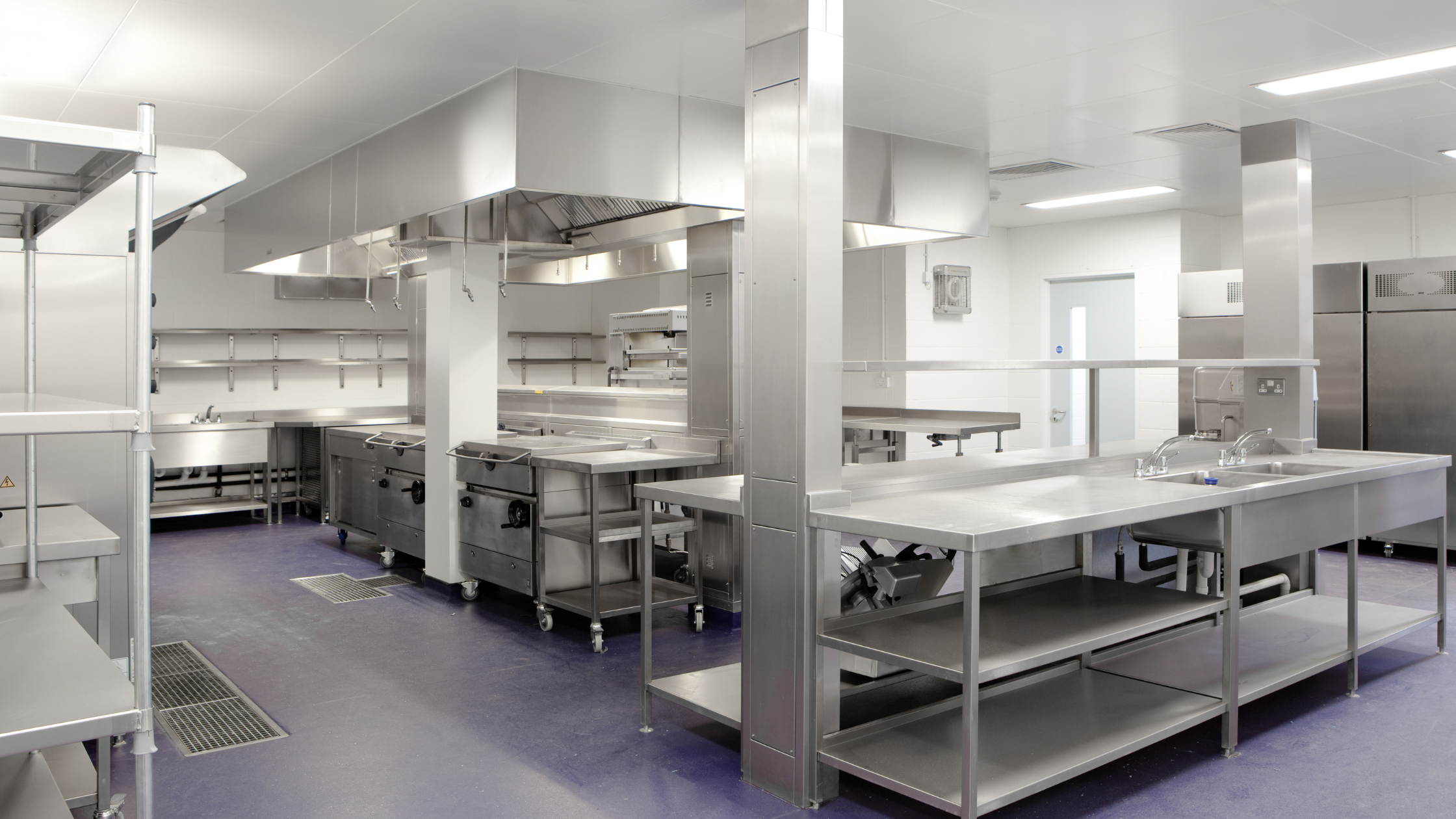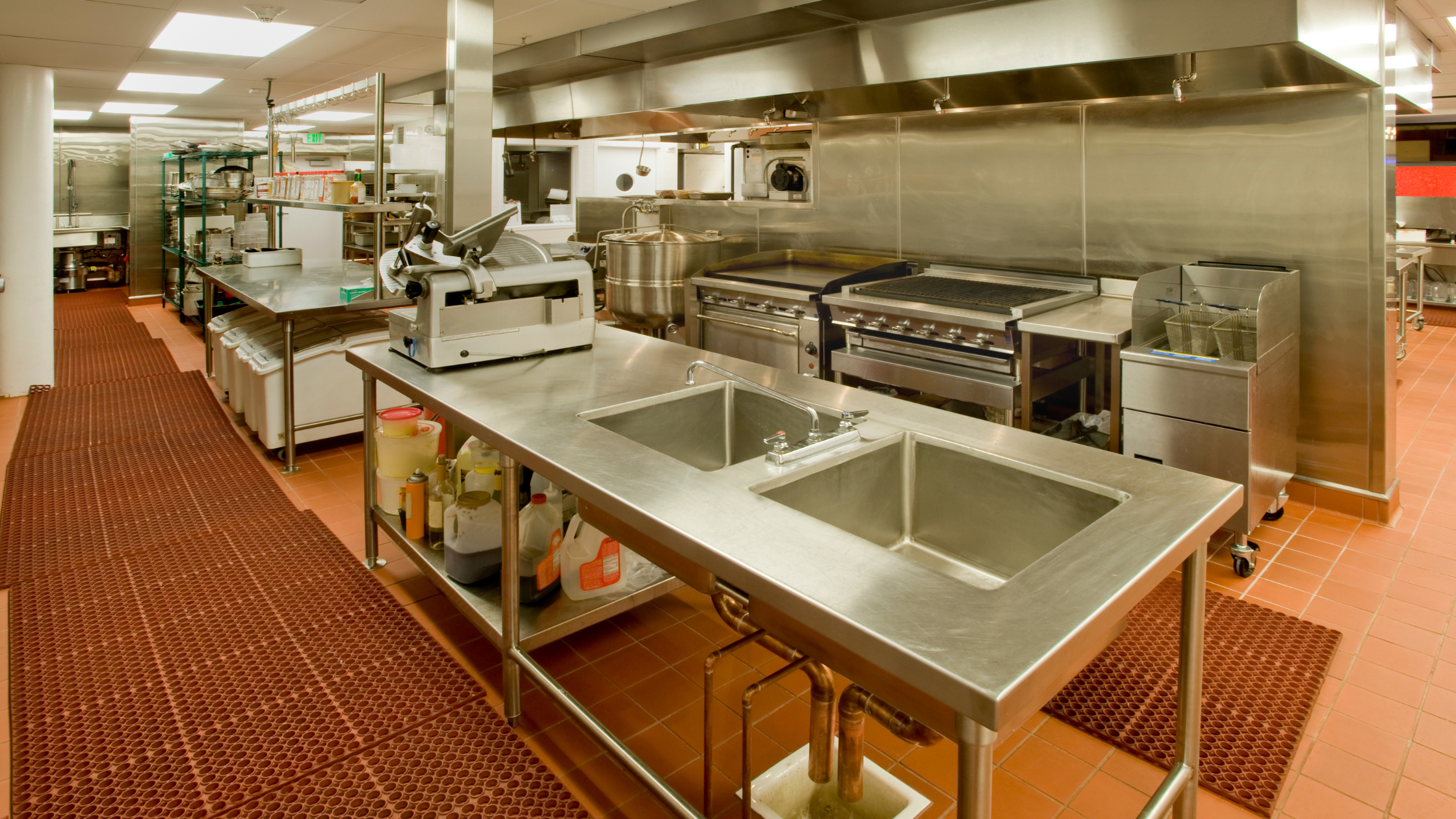
The Must-Have Commercial Kitchen Equipment for a Successful Catering Business
Introduction: Setting Up Your Commercial Kitchen
Setting up a successful catering business requires careful planning and investment in the right commercial kitchen equipment. Whether you are just starting out or looking to upgrade your existing equipment, having the essential tools and appliances can make all the difference in running a smooth operation. In this article, we will explore the must-have commercial kitchen equipment that every catering business should invest in, along with tips on maintenance and care, and choosing the right equipment for your specific needs.
Essential Commercial Kitchen Equipment
1. Commercial Refrigeration Units: Keeping Ingredients Fresh
One of the most important pieces of equipment in any catering business is commercial refrigeration units. These units are designed to store large quantities of food items at optimal temperatures, ensuring freshness and preventing spoilage. Invest in high-quality walk-in refrigerators and freezers, as well as reach-in refrigerators for easy access to frequently used ingredients.
2. Cooking Range: Versatility and Efficiency
A reliable cooking range is essential for any catering business. Look for a range that offers multiple burners of varying sizes, along with an oven for baking and roasting. This versatile piece of equipment will allow you to prepare a wide range of dishes simultaneously, saving both time and effort.
3. Convection Oven: Evenly Cooked Delicacies
A convection oven is a must-have for any professional kitchen. Unlike traditional ovens, convection ovens circulate hot air evenly throughout the cooking chamber, resulting in perfectly cooked delicacies every time. From baking pastries to roasting meats, this equipment will elevate the quality of your culinary creations.
4. Food Preparation Stations: Efficient Workflow
Efficient food preparation is crucial in a busy catering business. Invest in sturdy food preparation stations with ample countertop space, sinks for washing produce, and storage shelves for utensils and ingredients. These stations will streamline your workflow, allowing your staff to work seamlessly and produce high-quality dishes.

5. Commercial Dishwasher: Quick and Hygienic Cleaning
Maintaining proper hygiene is of utmost importance in a catering business. A commercial dishwasher will ensure quick and efficient cleaning of dishes, utensils, and cookware, reducing the risk of contamination. Look for a dishwasher with multiple wash cycles and adjustable water temperatures to accommodate different types of items.
6. Food Display Equipment: Attractive Presentations
In the catering business, presentation plays a significant role in attracting customers. Invest in food display equipment such as buffet warmers, refrigerated display cases, and serving trays to showcase your culinary creations in an appealing manner. These equipment not only enhance the visual appeal but also help keep the food at optimal temperatures.
7. Storage Solutions: Organized Inventory Management
Proper storage is essential for maintaining an organized inventory in your commercial kitchen. Install sturdy shelving units and storage racks to keep ingredients, cookware, and utensils neatly organized. Labeling systems can also be helpful in ensuring easy identification of items, reducing the chances of errors during busy times.
Maintenance and Care of Commercial Kitchen Equipment
1. Regular Cleaning: Preventing Build-up
Regular cleaning is crucial for maintaining the performance and longevity of your commercial kitchen equipment. Follow manufacturer's guidelines for cleaning each piece of equipment, paying attention to areas prone to build-up such as grease traps, filters, and ventilation systems. Regularly clean surfaces using mild detergents and sanitizers to prevent the growth of bacteria.
2. Scheduled Maintenance: Extending Lifespan
Just like any other machinery, commercial kitchen equipment requires regular maintenance to ensure optimal performance over time. Create a maintenance schedule that includes tasks such as lubrication, filter replacements, and inspections by qualified technicians. By following a proactive maintenance plan, you can extend the lifespan of your equipment and avoid unexpected breakdowns.
3. Training Staff: Proper Handling and Care
Proper training of your staff is essential to ensure the correct handling and care of commercial kitchen equipment. Train them on the proper usage, cleaning, and maintenance procedures for each piece of equipment. Emphasize the importance of following safety guidelines and reporting any issues or malfunctions promptly.
Choosing the Right Commercial Kitchen Equipment for Your Business
1. Assessing Your Needs: Identifying Key Equipment
Before purchasing commercial kitchen equipment, it's important to assess your specific needs. Consider factors such as the size of your operation, menu offerings, and expected volume of customers. Identify the key pieces of equipment that are essential for your business to function efficiently.
2. Quality and Durability: Investing in Reliability
When it comes to commercial kitchen equipment, quality and durability should be top priorities. Look for reputable brands known for their reliability and longevity. While these may come at a higher price point initially, investing in high-quality equipment will save you money in the long run by reducing maintenance costs and avoiding frequent replacements.
3. Energy Efficiency: Lowering Operational Costs
Energy efficiency is an important consideration when choosing commercial kitchen equipment. Opt for appliances with energy-saving features such as programmable timers, insulated doors, and efficient ventilation systems. These features not only lower your operational costs but also contribute to a more sustainable business model.
4. Size and Space Requirements: Optimizing Layout
Consider the available space in your commercial kitchen when selecting equipment. Ensure that each piece fits comfortably without overcrowding or hindering workflow. Take measurements beforehand to determine the ideal size requirements for each appliance.
5. Safety Features: Prioritizing Employee Well-being
Safety should always be a priority in any commercial kitchen setting. Look for equipment that incorporates safety features such as automatic shut-offs, temperature controls, and fire suppression systems. These features help protect your employees and minimize the risk of accidents or injuries.
6. Warranty and Service: Peace of Mind
When investing in commercial kitchen equipment, it's important to consider the warranty and service options provided by the manufacturer. A comprehensive warranty will give you peace of mind knowing that any potential issues will be taken care of promptly. Research the reputation of the manufacturer for their customer service and availability of spare parts.
FAQs
Q1: What are the essential commercial kitchen equipment for a successful catering business?
A1: The essential commercial kitchen equipment for a successful catering business include refrigeration units, cooking range, convection oven, food preparation stations, commercial dishwasher, food display equipment, and storage solutions.
Q2: How should I maintain and care for my commercial kitchen equipment?
A2: Regular cleaning, scheduled maintenance, and proper training of staff are important for maintaining and caring for commercial kitchen equipment. Follow manufacturer's guidelines, create a maintenance schedule, and train your staff on proper handling procedures.
Q3: How do I choose the right commercial kitchen equipment for my business?
A3: To choose the right commercial kitchen equipment for your business, assess your needs, prioritize quality and durability, consider energy efficiency, optimize layout and space requirements, prioritize safety features, and research warranty and service options.
Q4: Why is energy efficiency important in commercial kitchen equipment?
A4: Energy efficiency in commercial kitchen equipment helps lower operational costs and contributes to a more sustainable business model. Appliances with energy-saving features reduce electricity consumption without compromising performance.
Q5: How can I ensure food safety in my catering business?
A5: Ensuring food safety in your catering Brayco New Zealand business involves proper storage practices, regular cleaning and sanitization of equipment, following hygiene protocols during food preparation, and training staff on safe handling procedures.
Q6: What should I consider when investing in commercial kitchen equipment?
A6: When investing in commercial kitchen equipment, consider factors such as quality and durability, energy efficiency, size and space requirements, safety features, and warranty and service options provided by the manufacturer.
Conclusion
Investing in the right commercial kitchen equipment is crucial for the success of your catering business. By having the essential tools and appliances, you can streamline your operations, maintain braycostainless.co.nz food quality, ensure hygiene standards, and create visually appealing presentations. Remember to regularly clean and maintain your equipment, train your staff on proper handling procedures, and choose equipment that meets your specific needs. With a well-equipped kitchen and efficient workflow, you can provide exceptional culinary experiences to your customers while maximizing profitability in the long run.